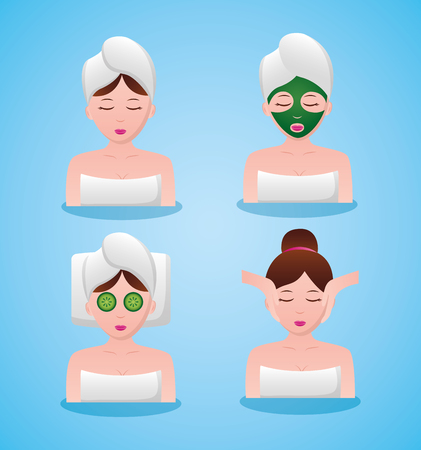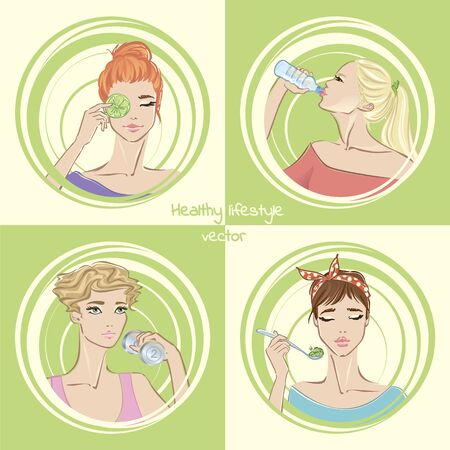Introduction to Acne Across Ages
Acne is a widespread skin concern that affects individuals across all age groups in the UK. While it is commonly associated with adolescence, many adults also experience persistent or late-onset acne, making it a relevant issue throughout different stages of life. In Britain, factors such as climate, lifestyle, and stress levels can all contribute to the prevalence and persistence of acne. The condition not only impacts physical appearance but can also have significant effects on self-esteem and mental wellbeing, regardless of age. Understanding how acne manifests in teenagers compared to adults is crucial for recognising the unique challenges each group faces and for tailoring effective treatments suited to their specific needs.
Teenage Acne: Causes and Characteristics
Acne is a common concern for British teenagers, with the majority experiencing some form of skin breakout during adolescence. The root causes are multi-layered, largely shaped by hormonal shifts, lifestyle habits, and the unique pressures of school life in the UK. Understanding these factors is crucial for both prevention and effective management.
Hormonal Changes During Puberty
The surge of androgens during puberty plays a central role in teenage acne. These hormones stimulate sebaceous glands to produce excess oil (sebum), which can clog pores and lead to breakouts. This biological process is universal, but recent NHS data highlights that up to 85% of UK teens report noticeable acne between the ages of 13 and 19.
Lifestyle Influences Specific to UK Teens
Daily routines, dietary habits, and stress levels all contribute to the severity of acne in British adolescents. Below is a summary of key lifestyle factors:
| Factor | Impact on Acne | UK Context |
|---|---|---|
| Diet | High sugar and dairy intake may exacerbate breakouts. | Common consumption of sugary drinks, crisps, and chocolate in schools. |
| Sleep Patterns | Lack of sleep increases stress hormones and inflammation. | Late-night studying and screen time are prevalent among GCSE/A-Level students. |
| Physical Activity | Sweat and friction from sports can block pores if not managed properly. | PE classes are mandatory; football and rugby are popular after-school activities. |
| Skincare Habits | Over-washing or using harsh products can irritate skin further. | Many teens use over-the-counter spot treatments without proper guidance. |
The School Environment: Stress and Social Pressures
The British school environment can intensify acne concerns. Academic pressure from exams such as GCSEs and A-Levels, combined with social dynamics like peer comparison, often lead to heightened stress—a known trigger for inflammatory skin conditions. School uniforms may also impact skin health if materials trap sweat or irritate sensitive areas around the neck and back.
Summary Table: Teenage Acne Triggers in the UK
| Main Trigger | Description |
|---|---|
| Hormones | Puberity-driven androgen increase leading to excess sebum production. |
| Lifestyle Choices | Poor diet, irregular sleep, inadequate skincare routines. |
| Environmental Stressors | Exam stress, peer pressure, restrictive uniforms. |
Key Takeaway for Parents and Teens
A holistic approach—balancing hormone management with healthy lifestyle choices and stress reduction strategies—is vital for controlling teenage acne in the UK context. Early education about skincare tailored to the realities of British youth can foster better long-term skin health outcomes.

3. Adult Acne: Emerging Challenges
Adult acne is an increasingly recognised skin concern in the UK, affecting a significant number of people well beyond their teenage years. Unlike adolescent acne, which is often linked to hormonal changes during puberty, adult acne tends to be influenced by a broader range of triggers.
Stress and Its Impact
One of the main contributors to adult acne in the UK is stress. The pressures of modern British life—workplace demands, financial worries, and family responsibilities—can all elevate stress hormones such as cortisol. These hormonal fluctuations can lead to increased sebum production and inflammation, resulting in breakouts that are often more persistent than those experienced during adolescence.
Diet and Lifestyle Factors
Diet plays a notable role in adult skin health. Recent trends in the UK towards processed foods high in sugar and dairy products have been associated with flare-ups in some individuals. While not everyone will react the same way, many adults find that making mindful dietary choices—such as incorporating more whole foods and reducing refined sugars—can help manage their skin concerns.
Environmental Triggers
The UK’s variable climate also presents unique challenges for adult skin. Urban pollution, exposure to harsh weather conditions, and even hard water can exacerbate sensitivity and clog pores, leading to more frequent or severe outbreaks. Adults living in cities like London or Manchester may find these environmental factors particularly relevant.
Differences from Teenage Acne
A key distinction between teenage and adult acne lies in how the skin responds to these triggers. Adult skin generally has a slower cell turnover rate and may be drier or more sensitive than adolescent skin. As a result, adult acne often appears as deeper, inflamed lesions around the jawline and chin rather than the oilier, widespread spots seen in teenagers. This difference means that over-the-counter treatments designed for teenage skin may not always be suitable or effective for adults.
In summary, adult acne in the UK is shaped by a complex interplay of stress, diet, environmental factors, and age-related changes in skin physiology. Understanding these differences is essential for developing an effective skincare routine tailored to adult needs.
4. Cultural Perceptions and Social Impact
Acne carries a unique set of cultural perceptions and social implications in the UK, which differ significantly between teenagers and adults. While skin concerns are often seen as a normal part of adolescence, adult acne tends to be viewed through a different, sometimes more critical lens. The way society responds to acne at various ages influences confidence, self-image, and even professional or social interactions.
Stigma Across Age Groups
In British schools and among peer groups, teenage acne is widely recognised and often expected. There is an underlying notion that “spots” are just part of growing up. However, this does not mean teenagers are immune to teasing or bullying; on the contrary, visible acne can still lead to reduced confidence and social withdrawal. In contrast, when adults experience acne, it is less accepted as ‘normal’, leading to assumptions about hygiene, lifestyle choices, or stress. This double standard means that adults with acne might feel additional pressure to hide their skin issues due to perceived societal expectations around maturity and professionalism.
Table: Social Perceptions of Acne by Age Group in the UK
| Teenagers | Adults | |
|---|---|---|
| Common Attitude | Seen as temporary and part of puberty | Often viewed as unusual or problematic |
| Societal Stigma | Mild to moderate (teasing may occur) | Higher (questions about lifestyle/hygiene) |
| Impact on Confidence | May cause embarrassment, but support is common among peers | Can significantly affect self-esteem; less peer support |
| Professional Implications | Rarely impacts future prospects | Potential impact on workplace image and confidence |
| Cultural Support Systems | School-based resources; open discussion in PSHE classes | More private; support often sought online or via NHS/GPs |
The Role of Societal Expectations in the UK
The British tendency towards understatement can mean that people suffering from acne—at any age—may downplay their distress rather than seek help. Media representation also plays a role: while campaigns have begun to feature more diverse skin types and conditions, there remains an idealised standard of clear skin. For adults in particular, there is an implicit expectation to have “grown out” of acne by one’s 20s or 30s. This can create isolation for those who do not fit the narrative.
Summary of Key Points:
- Younger individuals: Face stigma but find solidarity within peer groups.
- Adults: Encounter more subtle but pervasive judgement impacting both personal and professional lives.
- Cultural shift: Awareness is increasing, but traditional attitudes persist in many settings across the UK.
Understanding these cultural nuances helps inform better support systems for all ages dealing with acne, moving towards greater empathy and practical solutions in everyday life.
5. Approaches to Treatment: From NHS Guidance to Over-the-Counter Solutions
When it comes to managing acne across different ages in the UK, treatment options are varied and tailored according to severity, skin type, and personal circumstances.
NHS Guidance and GP Support
For both teenagers and adults, the NHS is often the first port of call for advice on persistent or severe acne. GPs may recommend topical treatments containing benzoyl peroxide or retinoids as first-line therapies. In more stubborn cases, particularly for adults dealing with hormonal acne, oral antibiotics or combined contraceptive pills may be prescribed. The NHS also stresses the importance of patience—acne treatments typically require several weeks before notable improvement is seen.
Pharmacy Products: Accessible Solutions
High street pharmacies across the UK offer a range of over-the-counter solutions. These include cleansers and gels with salicylic acid or benzoyl peroxide, which are popular among teenagers due to their accessibility and affordability. For adults who may have more sensitive or drier skin, non-comedogenic moisturisers and targeted serums are readily available. Pharmacists can provide guidance on suitable products and how best to integrate them into daily routines.
Self-Care Routines and Lifestyle Adjustments
Alongside medical and pharmacy-based interventions, self-care routines play a critical role in managing acne at any age. The NHS recommends gentle cleansing twice daily, avoiding harsh scrubbing that can aggravate the skin. It’s also advised to remove makeup thoroughly before bed and resist picking spots to reduce scarring risk. For adults, managing stress levels and maintaining a balanced diet can sometimes help mitigate flare-ups.
Tailoring Treatments for Teenagers vs Adults
The approach to treatment should always consider age-specific concerns. Teenagers may benefit from oil-control products and education on proper skincare habits, while adults might require additional support addressing underlying hormonal factors or medication side effects.
Key Takeaways for UK Residents
In summary, those experiencing acne in the UK have access to a spectrum of solutions—from trusted NHS protocols to widely available pharmacy items and pragmatic self-care tips. Regardless of age, seeking professional advice when needed and adopting consistent care routines will yield the best long-term results.
6. Living with Acne: Real Stories and Everyday Tips
Managing acne is a personal journey, often shaped by age, lifestyle, and the unique challenges of daily life in the UK. To provide practical insight, we’ve gathered real anecdotes from individuals across different age groups who have navigated acne in British settings—along with their tried-and-tested advice.
Teenage Experiences: Navigating School and Social Pressures
For many UK teenagers, acne can be especially tough due to school environments and social circles. Sophie, a 16-year-old from Manchester, shares: “I felt self-conscious at school when my skin flared up before exams. My GP suggested a gentle cleanser and recommended not to pick at spots, which honestly helped.” Many teens echo the importance of a simple routine—using fragrance-free products available from Boots or Superdrug, and resisting the temptation to cover breakouts with heavy makeup.
Young Adult Perspectives: University Life and Independence
Transitioning to university brings new stressors. James, 21, studying in Edinburgh, recalls: “Late nights and pub food made my skin worse. I started cooking more veg-heavy meals and switched to non-comedogenic moisturisers I found in local chemists.” Sharing bathroom space in halls also taught him the value of keeping personal towels and pillowcases clean to reduce irritation.
Adult Reflections: Balancing Work and Skin Care
For adults, acne can be unexpected. Priya, 34 from London, notes: “After moving to a high-pressure job in the City, I noticed more breakouts along my jawline. Consulting an NHS dermatologist helped me understand hormonal triggers. Now I prioritise sleep, drink plenty of water, and use prescription creams only as directed.” Many adults find that being open about their skin struggles with colleagues reduces stigma and anxiety.
Practical Everyday Tips from Across the UK
- Stick to a consistent routine: Whether you’re using high street brands or prescription treatments, consistency is key.
- Mental wellbeing matters: Several people recommend mindfulness apps popular in the UK (like Headspace) to manage stress-related flare-ups.
- Stay sun-safe: British weather may be unpredictable but wearing SPF—even on cloudy days—prevents post-acne marks.
A Supportive Community
The consensus among those living with acne in the UK is clear: you are not alone. From online forums like Reddit’s r/UKSkincare to local support groups run by charities such as Changing Faces, sharing experiences helps normalise acne at any age—and fosters resilience through community advice.
7. Conclusion: Embracing Skin Health at Every Stage
Reflecting on acne across different ages in the UK, it is clear that a supportive approach to skincare is essential for both teenagers and adults. The journey with acne is rarely straightforward, often influenced by genetic, environmental, and lifestyle factors unique to British life—think unpredictable weather, urban pollution, or even diet trends like the popularity of milky teas and high-carb snacks. Rather than viewing acne as merely a teenage rite of passage or an adult embarrassment, we should acknowledge it as a complex skin condition requiring empathy and understanding at every stage of life.
Within British culture, where skin issues can impact self-esteem and social interactions—from school corridors to professional offices—it’s vital to foster open conversations about skin health. The stigma around acne needs to be challenged with accurate information and genuine support, whether through NHS guidance, local pharmacy advice, or trusted skincare communities online. By encouraging early intervention for teens and ongoing care for adults, we can help individuals make informed choices without shame or secrecy.
Ultimately, embracing lifelong skin health means recognising that everyone’s skin tells a story shaped by age, environment, and personal habits. By promoting kindness towards ourselves and others facing acne, we build a culture of acceptance that transcends quick fixes or beauty standards. In the UK context—where individuality is valued and diversity celebrated—such an approach ensures that people feel supported in caring for their skin at every age, leading not only to better skin outcomes but also to greater confidence and wellbeing.


